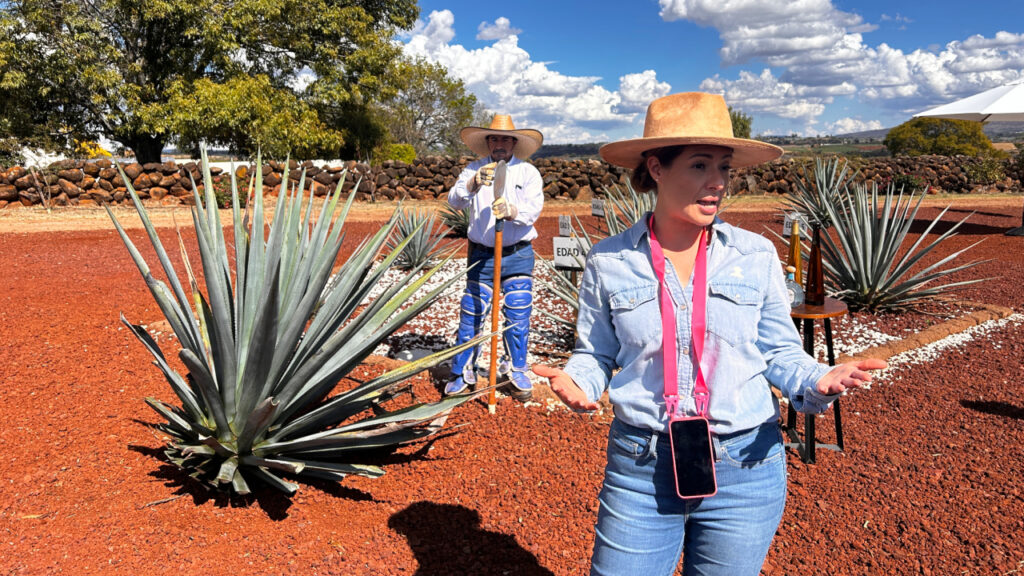
She Built a Cannabis Empire With $10K—Now Cristina Aranguiz Is Fighting for Equity and Representation
If you ask Cristina Aranguiz how she made it in cannabis, she’ll tell you it started with a real estate license, $10,000, and a relentless sense of purpose. At just 22 years old, the first-generation Cuban-American entrepreneur co-founded her first dispensary in Washington state. A decade later, she’s leading a multimillion-dollar business with seven retail locations across three states—and pushing to make the industry more accessible for women and people of color.
Now, as birthright citizenship once again becomes a political talking point, Aranguiz’s journey speaks volumes. “If birthright citizenship didn’t exist, I wouldn’t be here telling this story,” she told FIERCE. “This business, this platform, the opportunities I’ve been able to create for others—might not have been possible.”
What it’s really like to be a Latina in the cannabis industry
Despite making up nearly 20% of the U.S. population, Latinas in the cannabis industry remain severely underrepresented. According to MJBizDaily’s Diversity Report, just 5.7% of cannabis licenses nationwide belong to Latinx entrepreneurs. That gap isn’t from a lack of demand. A 2023 study from the National Hispanic Cannabis Council (NHCC) found that U.S. Hispanics spend about $2.5 billion on cannabis annually, with 40% using it monthly.
So why the disconnect? Historically, anti-immigrant rhetoric and the War on Drugs targeted Latinx communities disproportionately. Cannabis prohibition became entangled with racial profiling, surveillance, and criminalization. Arrests for simple possession have blocked many from even applying for cannabis licenses. Others face hurdles like predatory lending, lack of Spanish-language education, and cultural stigma.
“I didn’t come from money. I didn’t have investors,” Aranguiz said. She had to hustle, reinvest every commission check from real estate, and “build something from scratch.”
She credits Washington’s accessible licensing structure for helping her get in the door—but notes that newer policies elsewhere make entry nearly impossible. “Six-figure fees, scoring systems no one understands, thousands of pages of paperwork—that’s not equity,” she said. “That’s gatekeeping.”

Breaking stigma in her own family and community
Even after opening multiple dispensaries, Aranguiz admits she didn’t tell her Cuban-American family what she did for years. “To them, it wasn’t a business—it was a drug business,” she recalled. “There’s a lot of stigma around cannabis in Latino communities, especially older generations.”
Eventually, her family came around. “Now they’re proud. I even get ‘Happy 420’ texts from relatives I never expected,” she said.
For Aranguiz, the shift was more than personal. “That evolution is important, not just for me, but for our culture,” she explained. “If I can help shift perceptions in my own family, maybe I can help do the same more broadly in the Latino community.”
Latinas in the cannabis industry are building more than businesses
Aranguiz didn’t set out to be an activist, but legacy, she says, isn’t always about making noise. Sometimes, it’s about impact. “There wasn’t one big moment,” she said. “It was a series of quiet confirmations. Thousands of five-star reviews. Employees telling me they finally feel proud to bring their parents to see where they work.”
That’s when she realized she was creating more than a business. She was building a community.
Now, she’s advocating for policies like ESOPs (employee stock ownership plans) to help workers share in long-term wealth. She also wants regulators to focus less on bureaucracy and more on people. “Success in this industry can grow from small, humble beginnings. I’m living proof of that,” she said. “But you have to give people a real chance.”

Cristina Aranguiz is bringing a Latin-inspired cannabis brand home
Next up: Florida. It’s personal. “I was born and raised in Miami, the daughter of Cuban refugees,” she said. “Coming back to build a Latin-inspired cannabis brand isn’t just business—it’s a homecoming.”
Aranguiz is eyeing the cultural playbook. “Look at what Modelo did,” she said. “They embraced identity and became the best-selling beer in America. That’s not just branding. That’s cultural connection.”
She envisions something similar for her new brand. “I want to speak directly to our community, through language, experience, and pride. Cannabis should be part of the movement reshaping how Latino culture is seen.”
What’s at stake if we lose birthright citizenship
According to Aranguiz, the stakes couldn’t be clearer. Her mother was born 25 days after arriving in the U.S. from Cuba. Without that Constitutional right, her entire story might have never happened.
“Policies like birthright citizenship don’t just affect individuals,” she said. “They shape entire families, communities, and generations. When you give people the chance to participate fully in society, they do incredible things with it.”
Her message is simple: this isn’t about politics. It’s about possibility. And as long as Latinas in the cannabis industry like Cristina Aranguiz keep showing up, fighting for access, and reclaiming space, the future looks a lot more green.




